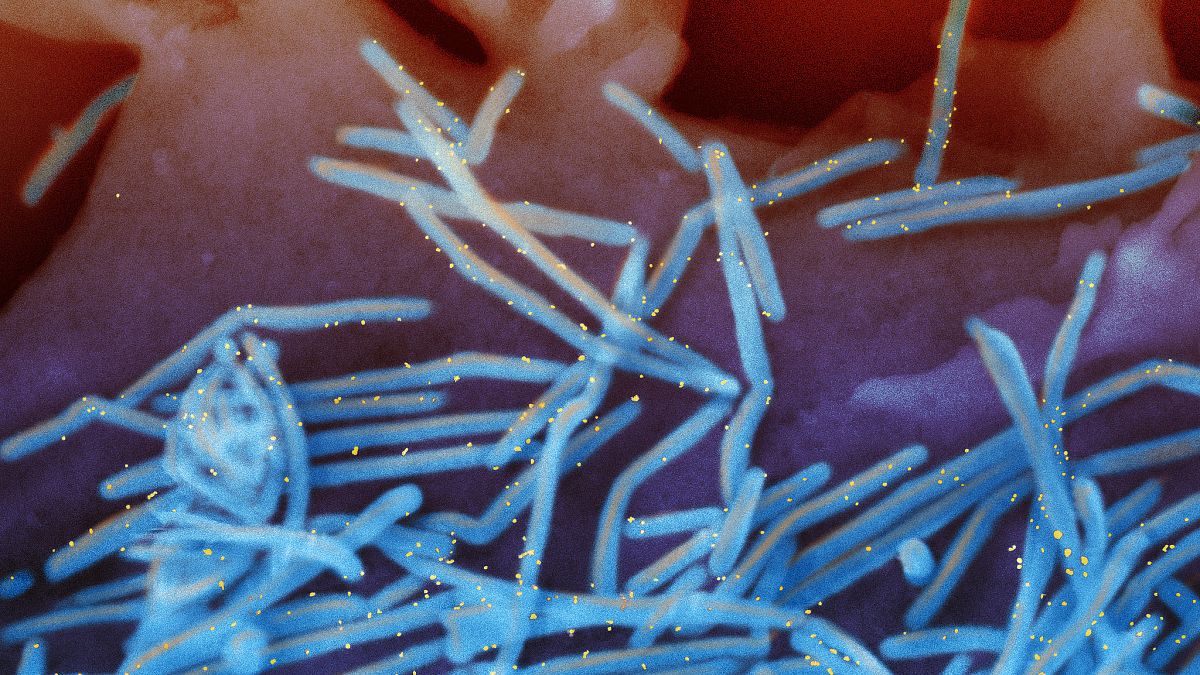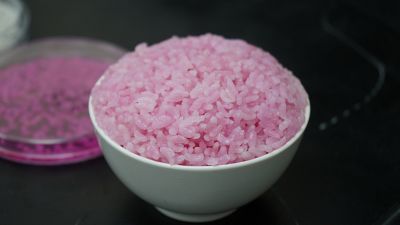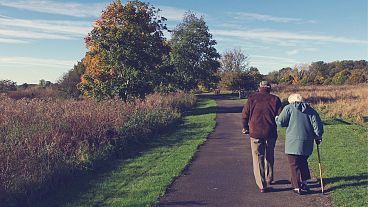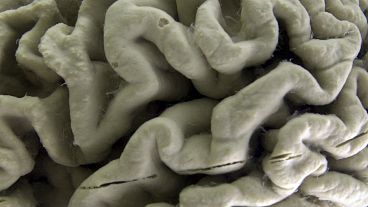French health authorities released two studies following their rollout of the new preventive antibody Beyfortus.
Roughly 5,800 hospitalisations from bronchiolitis were avoided in France thanks to the new preventive medicine nirsevimab, Public Health France said on Friday.
The health agency cited two studies that showed that the antibody, which is marketed under the name Beyfortus, was effective at preventing severe cases of the illness in newborns caused by respiratory syncytial virus (RSV).
The common respiratory virus causes cold-like symptoms but can be dangerous for newborns and older adults. It is the leading cause of paediatric hospitalisation in Europe.
Cases of the virus surged following the COVID-19 pandemic, with a triple epidemic of RSV, COVID-19, and flu co-circulating in many countries.
Beyfortus, a preventive monoclonal antibody approved in Europe in late 2022, was provided to newborns in France starting in September 2023 as part of a preventive campaign.
But the government faced heavy criticism as demand for the antibody was much higher than expected.
The medicine is given as a single injection at birth. The active substance, nirsevimab, is a type of protein that attaches to a specific RSV protein to neutralise the virus.
In France, bronchiolitis is estimated to affect nearly 30 per cent of newborns under two years old every year, with two to three per cent of newborns under one being hospitalised for it.
Two French studies outline Beyfortus' efficacy
Health authorities monitored RSV cases in hospitals, including instances of severe illness following preventive treatment.
Public Health France said that one study the agency carried out in collaboration with the Paris-based Pasteur Institute found that Beyfortus was between 75.9 and 80.6 per cent effective in preventing severe RSV requiring hospitalisation for newborns.
This was similar to the results of phase III clinical trials.
"We were able to evaluate in a very short time the positive effects in real life of nirsevimab (Beyfortus) on the health of infants, with the treatment's effectiveness estimated between 76% and 81%," said Isabelle Parent du Chatelet, head of the respiratory infections and vaccination unit at Public Health France.
She added that these results were sent to inform future policy decisions regarding the prevention of RSV.
A second study determined, using a mathematical model, that between September 2023 and February 2024, nirsevimab prevented 5,800 hospitalisations, including 4,200 for newborns up to two months old.
This represented a 23 per cent reduction in hospitalisation for babies who arrived in an emergency department for RSV compared to a scenario where the antibody was not administered.
"The two studies use different approaches. One analyses real-time data in paediatric intensive care units while the other models surveillance data in the population," Simon Cauchemez, head of mathematic modelling of infectious diseases at the Pasteur Institute, said in a statement.
"But they result in similar calculations of nirsevimab's effectiveness," he added.



